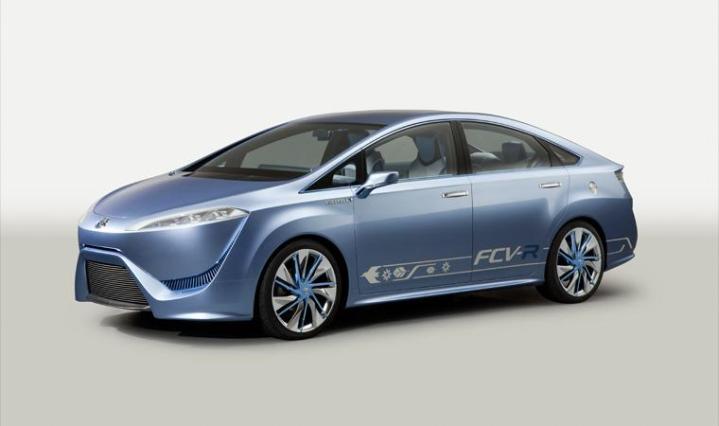
The car of the future is here…again.
Toyota released its prototype hydrogen fuel cell car to journalists. In and of itself, this is no big whoop; a new hydrogen car is in the news virtually every week now. What makes this different is that this one is going to be on sale in less than two years and it’s from one of the largest automakers in the world.
The prototype is built on the chassis of a Lexus HS 250h, a hybrid model that did so poorly in the United States that you can’t buy it anymore. The car isn’t as dismal as all that though, Bloomberg reports that its range will exceed 300 miles – better than just about any EV on the market. It manages this on 11 pounds of compressed hydrogen, meaning that it does just under 30 miles per hydrogen.
Seriously; with the rise of alternative fuel vehicles, we need some other measurement of efficiency than mpg, like joules of energy per kilometer or something equally inscrutable. MPGe is just silly. So let’s keep brainstorming.
The few journalists who drove Toyota’s new hydrogen car report that it handles and performs well. It may only have about 150 horsepower, but, by taking advantage of the torque of its electric motors, it can chirp its tires of the line. Sounds like a lot more fun than a Prius!
Despite some obvious benefits, like zero tail pipe emissions and the fact that hydrogen is much easier to pour than electricity, hydrogen fuel cells are not without their detractors. CEO of Tesla and possible Bond villain Elon Musk has criticized fuel cells as being too complicated and not clean enough, as most hydrogen is processed from natural gas.
While he might have a point, there are some problems with his argument. For instance, the squeaky-clean electricity that goes into Musk’s Teslas comes from fossil fuels in most parts of the United States. That’s right. Did you know your EV is coal powered?
There are still problems ahead for this – and every other – hydrogen car. Hydrogen still has to overcome the obstacles of production, storage, the expense and complexity of fuel cells, and the lack of a robust hydrogen fuel station network.
Yet when Toyota sets its mind to something, there are usually serious results. When it released the Prius in 1997, no one knew what the hell a hybrid was. Now, you can get a hybrid Tahoe, and every third person in Digital Trends’ home town- Portland – drives a Prius. So when Toyota says it plans on selling 10,000+ units per year by 2017, it’s hard not to take that seriously.
With recent expansions of hydrogen fuel stations in Germany, and numerous announcements by other automakers on their plans to expand their hydrogen repertoire there may be reason to believe the same transformation is in order for hydrogen cars.
We will know more when Toyota officially unveils the car at next month’s Tokyo Auto Show.


